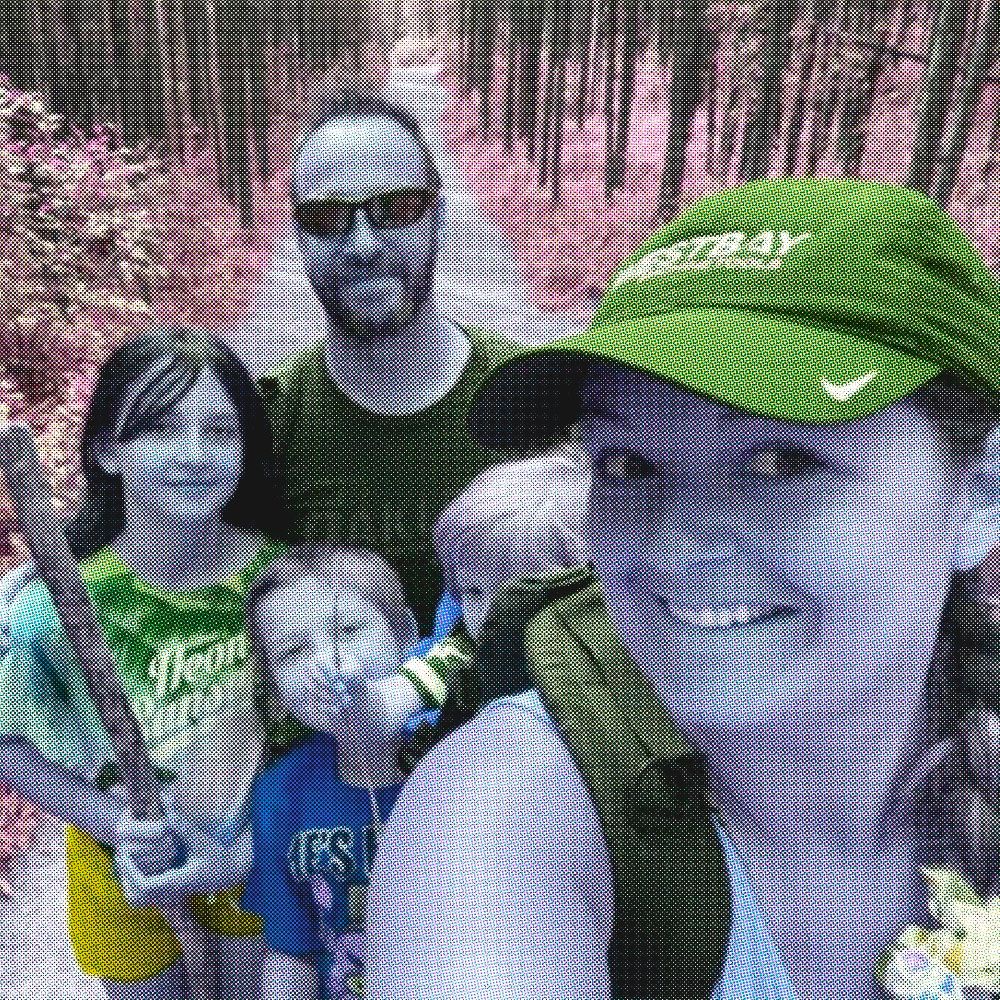Editor's note: While all products and services we feature are independently selected by our team, some items use affiliate links. This means that if you click these links and make a purchase, we may earn a commission. You can find out more in our privacy policy.
Call it nature or nurture, but I am 100 percent the kind of person who likes to be productive, who measures the value of a day on how many items I checked off my to-do list. The trouble is, burnout is real — and a real problem. (Did you catch this recent World Health Organization study on how long working hours significantly raise your risk of stroke and heart disease?)
Personally, I’ve been working hard on working less, and on focusing more on process than result — like looking at the pile of books and magazines on my coffee table as a pleasurable journey, not a list of tasks to complete. So when I came across new book Laziness Does Not Exist by social psychologist Dr. Devon Price, I was extremely ready for it. (How can you resist that title?)
In their book, Price — who is also an activist, and a professor at Loyola University of Chicago’s School of Continuing and Professional Studies — explains how the concept of laziness is a judgemental one, tied to cultural ideas that hard work and productivity are morally superior ways of being. They call this belief system the “Laziness Lie” and blame it for a host of problems, from poor mental health to economic inequality. “Though many of us feel guilty for not being productive enough, the truth is that most of us are doing far more work than is healthy,” they write. “We’re pushing our bodies and minds to the limit, ignoring the natural warning signs of tiredness and laziness, and encouraging others to do the same.”
In fact, Price continues, feeling “lazy” is a sign you need a break, and a chance to rest and recharge. Idle time is an essential part of human existence, which makes a lot of sense when you think of the environments we evolved in, free of the stimulation of smartphones, television, even newspapers and radio. And most important for those in creative professions, often our best ideas come when we’re on a walk or in the shower — not when we’re actively “working.”
I found this quote from the book particularly inspiring:
When we stop measuring our worth by how many items we check off of a to-do list, we can finally begin to seek out the activities that truly matter to us. When we set priorities based on our real feelings rather than society’s “shoulds,” we feel a greater sense of authenticity. And when we savour our free time and work to move at a slower, lazier, more intuitive pace, we begin to repair the damage that years of overwork has done.
The trick, of course, is in how to make this happen. So I chatted with Price over email about what the “Laziness Lie” means for small business owners and some strategies for change.
Workshop: Reading your book, I felt a sense of relief, like I was being given permission to be lazy. I suspect I’m not the only one who feels that way. Why do you think people might need external validation for their need for downtime?
Dr. Devon Price: Individual work habits have been so deeply moralized in our culture that it is almost second nature to assume that doing something “productive” is virtuous and good, and that doing nothing (or doing something silly/frivolous/nonproductive) is “bad.”
Pushing and moralizing the value of hard work is embedded in how we raise and educate our kids, it’s in almost all the media we consume from a young age, it’s emphasized a lot in the Christian moral tradition, which affects everyone because it is so omnipresent, and it's also deeply buried in how we explain the causes of social problems.
Low voter turnout isn't a pervasive, systemic lack of access, it's “lazy” people not going out to the polls. A lack of medical equipment that fits fat bodies isn't fatphobia, it's fat patients being too “lazy” to radically change their bodies in a manner that is only sustainable for about five percent of those who attempt it; the list goes on and on.
Even if we understand intellectually that our bodies need rest, most of us still see it acceptable only as a means to an end — even the idea of “self care” has become just another thing to schedule on your to-do list so you can remain an effective worker for longer.
It’s also the case that for most of us, working hard is tied to our ability to stay alive and keep our families alive. We live in a very economically precarious and terrifying time. So no wonder it’s hard, even impossible for some of us, to detach from the pressure to do more, earn more, sock more money away.
A lot of people who have that outlook aren't necessarily workaholics by nature. They’re just responding in an understandable way to the economic reality they are living in, sadly.
W: You write that research suggests that our culture’s “standard” workdays and commitments are not possible to maintain if we want to avoid burnout and stay mentally healthy. Do you have any suggestions for figuring out an amount of work that is healthy and sustainable?
DP: Assume that whatever you are currently doing is the maximum. Really!
Over and over again, I have witnessed that the people who feel the most “lazy” are the most burnt out and overextended. A lot of us don’t give ourselves credit for the massive amount of responsibilities we are juggling, and think our problem is finding a way to “time manage” ourselves into doing more. The solution is saying no, cutting down on obligations, and doing less, every single time. So, assume every hour of your day is already accounted for. Because it is!
You might not think that every way you spend your time is valid, but each choice you make reflects some need, or some pressure you are under. If you spend an hour at lunch every day online shopping, maybe that means your brain needs stimulation, novelty, something to look forward to (like a package arriving in the mail), or just to look at something beautiful! You may find a better way to meet that need (taking a walk and smelling the roses, literally or figuratively), but there is no making your needs and limitations go away. And if an item on your to-do list repeatedly fails to be met, it's because something is missing, or you're doing far too much.
Accepting that we can't do and be it all, and learning to move at a slower pace is scary — but it’s essential.
Ask yourself; does this item on my to-do list really matter to me? Can I just forget it? And if not, what adjustments can I make to ensure the box gets checked? What other responsibility am I going to let go of to make room, or how can I get some extra help? Accepting that we can't do and be it all, and learning to move at a slower pace is scary — but it’s essential.
W: Small business owners are particularly susceptible to the idea that there is always more work to do, and if we work harder, we’ll achieve more. But as you point out, working “harder” is not a goal one can actually reach. What are some strategies to lean out from this hustle mentality?
DP: I think first and foremost, look at how you treat your workers. [Editor’s note: Sometimes, your “workers” might be yourself.] I think we are living in a moment where workers being fairly compensated and equitably treated is finally on a lot of business owners’ radars in a way that it was not in the past.
I know from my own experiences as a worker that just because a business is small, doesn’t necessarily mean it’s free of grind culture and really punishing, even exploitative, work standards. In some cases small businesses can be even worse because their margins are so thin and the fear of failure is so heightened.
So first look at how you schedule your workers’ hours, what breaks and benefits you provide them, and what attitude you have toward the people you employ. Do you trust them? Do you think they’re lazy? Do you feel like you have to constantly push them to do more, and never find yourself satisfied with what they bring to the table? Is it really hard to hire new people right now? Your answers to these questions will tell you a lot about your business and how intense your pace is, as well as your own outlook.
In my book, I speak to Markus Nini, who runs the management consulting firm CQ Net in Germany and who is also a manager who practices evidence-based management. Markus is a great example of someone who has recognized that all the data shows that giving your employees flexible schedules, giving them some autonomy in their job role, and being encouraging and compassionate is empirically shown to lead to better work outcomes as well as happier people.
I think everyone who runs a business can stand to improve their own lives and the lives of their business by reading up on evidence-based management and taking a more gentle approach from the bottom up. The easier you are on other people, the easier you will be on yourself. It's all about radically reorienting your priorities.
W: In your own life, you gave up the dream of becoming a tenured professor in favour of a career path that allowed for a more relaxed, flexible schedule. But you are obviously still achieving things in your life, including writing this book. What does the rhythm of your days look like when you are feeling most balanced?
For me, it’s all about front-loading my schedule with the things that matter the most to me, overestimating how long a task will take, and saying “no” a lot, unapologetically. So I block out the first two hours of my work day, at least three days per week, to focus on writing. I don’t take any meetings or calls during that time. When I’m on a deadline, I block out every morning of the week if I can get away with it. I take meetings with students and colleagues until about 2 or 3 or so, and I try to finish my work obligations at that time of day.
Research shows that the average office worker is productive only about three to four hours per day, and I have absolutely found that to be true for myself. I can push myself to do more, to stay at my laptop later than 3 p.m., but it's always an exercise in frustration for diminishing returns.
I delete a lot of emails that aren't worth answering — media requests that aren’t a good fit, comments on my Medium posts that aren’t in need of a response, etc. I push a lot of meetings that I don't want to take into the next week, or the week after, so I can kind of kick the stress can down the street a bit. I take a lot of random afternoons off in the summer to take long walks or run errands.
I'm immensely blessed to be able to live this way. It’s evidence based and sanity-saving but very few people have the freedom I do.
W: Many of us have spent so long orienting our days around productivity and to-do lists that we don't know how to do nothing. Do you have any tips on how to truly relax?
DP: For me, beating the Laziness Lie isn’t about relaxation. It’s about living a life that lines up with your values, and dropping society’s “shoulds” so you can instead focus on what you want.
I personally don’t find standard “self care” activities very relaxing — massages stress me out, meditation is boring, staying home and doing nothing fills me with despair. Sometimes trying to relax can make you more anxious because you have a surfeit of energy to get rid of, or because you have been conditioned into associating stillness with guilt.
But! I take a lot of time off work to get my energy out in ways that make my life meaningful, but which don't make me “productive.” I go to lots of concerts and conventions. I take long walks and visit museums and gardens. I write fiction under a pseudonym. I play video games. The important thing is finding time to do things for me, that bring me closer to the people I love, that won’t benefit my employer or impress a large audience.
Every person is different, but I think it’s telling that we have come to associate free time with things like bubble baths and pedicures. True self care isn't always about buying something that will help you relax in a quick, pre-packaged hour. Sometimes it means taking a week off to hike, or spending your nights building an awesome costume for an anime convention and then visiting the convention with your friends.
Be silly, be frivolous, follow your passions and values. And say “no” to the things that get in the way of leading the life that you want, as much as possible.
What do you think — do you recognize yourself in this? Do you have questions on how to take summer afternoons off and keep your business humming? (Us, too!) Let us know in the comments!
Author photo by Collin Quinn Rice; photo collage by Corinna vanGerwen







